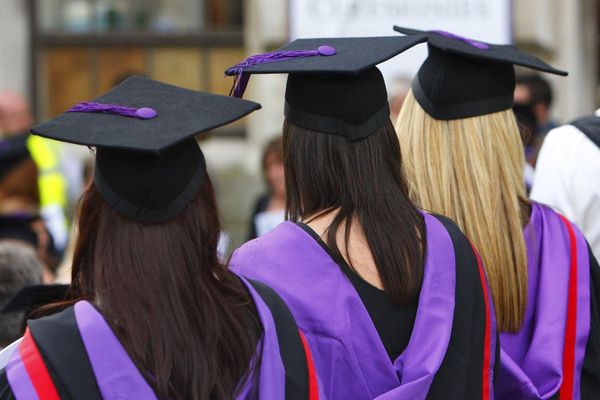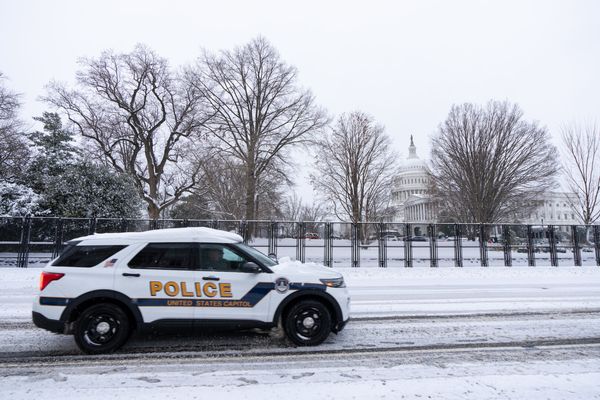WASHINGTON — As Democrats in Congress begin a legislative high-wire act to pass a $3.5 trillion spending plan without Republican support, Florida’s 10 House Democrats are urging their party’s leaders to include $5 billion for Everglades restoration in the bill.
The spending plan, which is still facing procedural hurdles as moderate and progressive Democrats debate the best path forward, is a massive expansion of the federal government that, among other things, will include a national paid family and medical leave program, fund universal preschool, provide free community college and expand Medicare to cover hearing, vision and dental care.
It’s also a grab-bag for potential legislation, like Everglades funding, in a bill that must pass by the end of 2021 under congressional budgetary rules.
“Congress now has a generational opportunity to set a course for completion of the world’s largest ecosystem restoration project: America’s Everglades,” South Florida U.S. Rep. Debbie Wasserman Schultz wrote in a letter to House Speaker Nancy Pelosi and Senate Majority Leader Chuck Schumer that was signed by the state’s nine other Democrats in Congress.
“Therefore, we urge you to support the inclusion in the American Jobs Plan legislation of a necessary $5 billion federal investment to complete Everglades restoration in accordance with the Army Corps’ Integrated Delivery Schedule.”
Parts of the American Jobs Plan, President Joe Biden’s infrastructure wish list, were included in a bipartisan infrastructure bill that passed the U.S. Senate in a 69-30 vote last week, though Florida Republican Sen. Marco Rubio’s amendment to include $5 billion for Everglades restoration was not included in the bill.
Rubio and Florida Republican Sen. Rick Scott both voted against the bipartisan bill.
But other parts of Biden’s plan, mainly related to climate change, were not included in the bipartisan bill due to Republican demands that limited the bill’s cost to $1.2 trillion. Florida Democrats say the partisan spending plan offers an opportunity to include the additional Everglades money, which generally receives bipartisan support from Florida lawmakers.
Republicans are almost certain to unite against the $3.5 trillion spending package, which funds Biden’s domestic agenda by raising taxes on the rich, with Rubio calling it a “monstrosity.”
Everglades Foundation CEO Eric Eikenberg said the year-to-year funding process that Everglades projects must go through in Washington led to “significant delays.”
“It will be 21 years in December,” Eikenberg said, referring to the Comprehensive Everglades Restoration Plan that was signed into law in 2000. “From the Everglades Foundation perspective, the time is now. These are shovel-worthy projects that were authorized by Congress as far back as 2007.”
Eikenberg said Rubio’s recent failed amendment in the U.S. Senate was significant because the Army Corps of Engineers confirmed that it would be able to spend the $5 billion on projects that are already approved.
“We’ve never had that type of public pronouncement,” Eikenberg said. “That’s the most significant outcome of the Rubio amendment. Now there’s momentum on the House side to do it.”
Eikenberg said the $5 billion for Everglades restoration in the larger $3.5 trillion plan would likely come from a pot of about $60 billion to $65 billion that is ultimately controlled by Oregon Rep. Peter DeFazio, who leads the House Transportation and Infrastructure Committee, and Delaware Sen. Tom Carper, who leads the Senate Environment and Public Works Committee.
“Chairman Carper and Chairman DeFazio have the ability based on this next round of legislating to be the two members of Congress from outside Florida who enabled Everglades restoration,” Eikenberg said.
The funding for Everglades restoration is split 50-50 between the state of Florida and federal government, based on the 2000 law.
The Democrats in their letter said an infusion of $5 billion in federal funds would enable the U.S. Army Corps of Engineers and the South Florida Water Management District to complete all authorized projects within the next decade.
“If this investment is not provided now, the timeline for completion of this great ecosystem project will be further prolonged and pushed onto the next generation,” the lawmakers wrote. “Investing now will not only make up for decades of insufficient funding, but will also free up resources for other restoration projects across the country now and in the future.”
Eikenberg said the biggest chunk of the $5 billion, if passed, would fund $2 billion for the construction of a reservoir south of Lake Okeechobee that would clean water before it is sent south through the Everglades. The reservoir reduces the need for discharges into the St. Lucie and Caloosahatchee rivers that can cause blue-green algae blooms on both rivers and Florida’s coasts.
Money would also be spent on additional reservoirs on the rivers east and west of Lake Okeechobee, the removal of levees and dikes in the central Everglades and an effort to strengthen coastal mangroves on Biscayne Bay, Eikenberg said..
“There’s a number of Everglades restoration projects that would benefit from this money, but the crown jewel is the reservoir south of Lake Okeechobee,” Eikenberg said.
———







